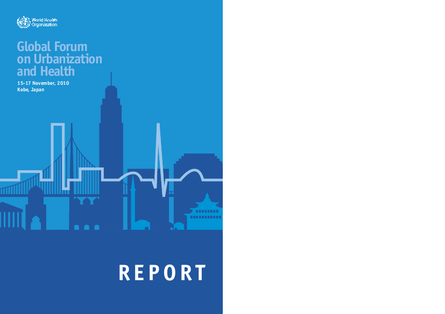
One of the greatest challenges of urbanization is the resulting health inequities with consequences to all city dwellers. No city is immune to this problem. Being aware of health inequities generates action for integrating health into urban planning and for improving transport systems, housing, zoning, and green spaces. In this regard, national and municipal leaders play a critical role to address the health and the inequities prevalent in our cities worldwide. They can advocate for change, implement regulations, and encourage a whole-of-government approach that includes multiple sectors and civil society. Throughout 2010, WHO held a year-long campaign to highlight the importance of addressing urbanization and health. The World Health Day theme “Urban health matters” helped raise the visibility of the issue whereby over 1500 cities participated in events.
Resource collections
- Climate emergency
- Evaluating humanitarian action
- UN Habitat - Urban Response Collection
- Urban Response - Urban Crisis Preparedness and Risk Reduction
- Urban Response Collection - Community Engagement and Social Cohesion
- Urban Response Collection - Economic Recovery
- Urban Response Collection - Environment and Climate Change
- Urban Response Collection - Housing, Land and Property
- Urban Response Collection - Urban Crisis Response, Recovery and Reconstruction
- Urban Response Collection - Urban Resilience